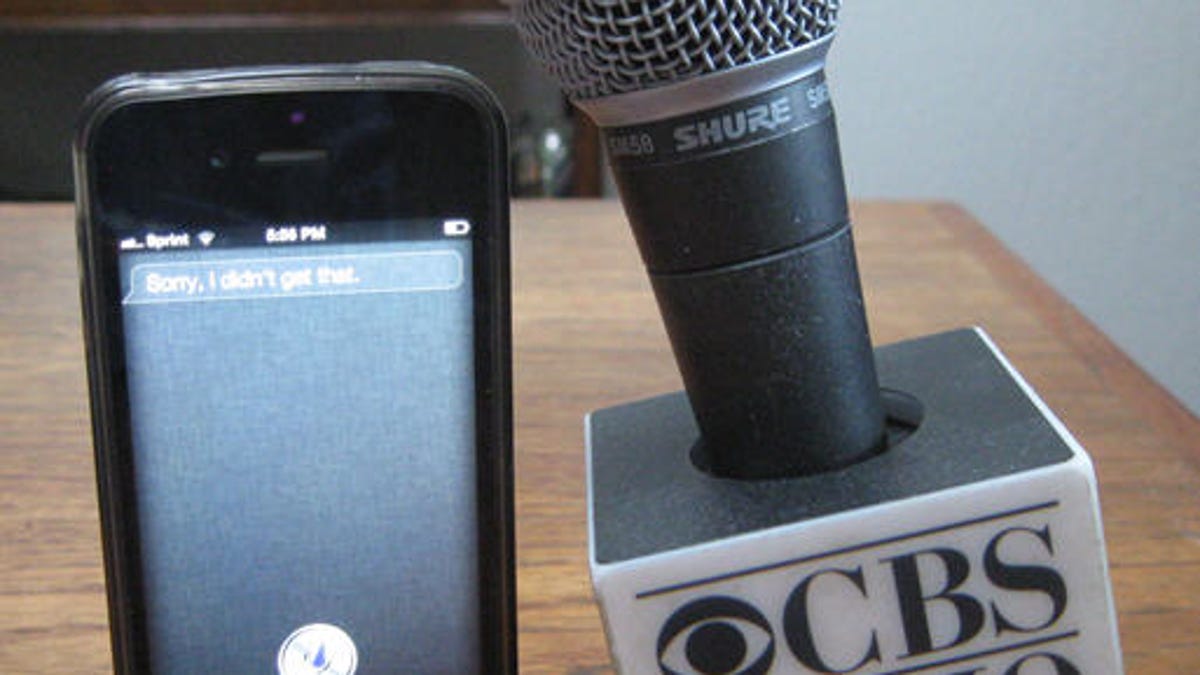What humanizing Siri, Ice Cream Sandwich says about us
Are we seeing a trend in smartphone technology that will emotionally tie us closer to our phones? CNET's Jessica Dolcourt says yes.

You love a phone design or you viscerally hate it; you can't stand this wallpaper, so you add that one. Your phone's design or color is a statement of your identity. Like all products it says something about you: you're hip and edgy, you're a top-notch professional, you're more subtle and value utility. If you invest in custom cases or stickers, is it only for protection, or also an act of self-expression?
Then there's the wallpaper you choose, the ringtones and alarms you set, the apps you download, that all create an environment uniquely shaped by and descriptive of you.
All this is a good thing, at least if you make or sell smartphones, and it's a tacit principle that the mobile industry thrives on. People don't just like their phones, we need them. And if you lose or leave behind your phone, you mourn every minute it's outside of your possession. Have you ever thought: my life is on my phone?
Yep, it's not for nothing that cell phones are called the most personal of consumer electronics.
The new wave of "mine"
That's why, when I look at Siri, the
You better believe that Apple made conscious decisions when locking down Siri. Apple didn't just treat the company it acquired in mid-2010 as a body of code to ingest and Applefy as another iSomethingOrOther, it treated the voice actions software like an entity.
At first I wondered loudly why Apple stuck with the Siri name, rather than calling the product iVoice. Then it became clear that Apple always wanted us to come to know Siri as a personality. Siri doesn't just have a name, doesn't just have a voice, Siri has a gender. She also has a personality, and one that, in the words of my colleague Kent German, is refreshingly "sly, smart, and sarcastic". It's true, too. Her lively personality makes me forgive her for sounding like a robot.
I've spent the last week hearing Siri's name called out in amusement and frustration while those around me test "her." Heck, CNET even interviewed Siri in a podcast.
With Siri, Apple is successfully forging a deeper, even more personal connection, between us and our iPhones. I, for one, am digging it.
Getting physical
I'd argue that it's a similar situation with Google's new moves in Ice Cream Sandwich, except that the features that draw you in here are visual and physical rather than audible.
Facial unlocking--where the
Android Beam, another Ice Cream Sandwich feature, also pulls in your other senses. Similar to the Bump app (for Android and iPhone), tapping two compatible Ice Cream Sandwich phones together can transfer maps, contact information, and details about apps you're running.
More than just creating community in the virtual world of social networks and Google services, Android Beam has the potential to also reinforce personal connections in the physical world--and to elicit an emotional response from you when it does.
More oomph, not less
The human tendency to anthropomorphize objects in our daily life is as old as we are. And, yes, a relationship between people and the objects that directly influence quality of life is a function of protective necessity (to oversimplify it)--one that doesn't extend only to mobile phones.
Yet I say there's a special case for phones, and for smartphones in particular, because of all they can do. A phone is designed to be on your person more than your laptop or car is, and it's as much an entertainment portal as it is a utility, which just increases its value. The fact that the collective society of smartphone users find these enhancements extra cool is a sign that we welcome phone-makers' role in deepening our ties to our things.
Bringing consumers closer to their phones also makes good business sense. Features that strengthen your dependency on a product may sell you a certain handset, but features that strengthen your relationship to your pal Siri, or to your Android buddy who has your back, could sell you an ecosystem for life.

